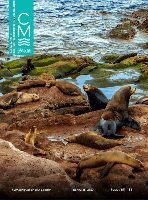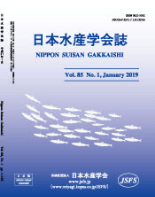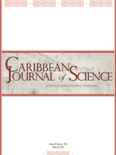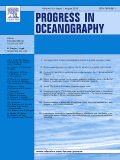
ACTA ADRIATICA
Scope & Guideline
Navigating the currents of ocean research.
Introduction
Aims and Scopes
- Marine Biodiversity Research:
The journal highlights studies that document and analyze the diversity of marine life, including new species records, distribution patterns, and ecological interactions among marine organisms. - Environmental Monitoring and Assessment:
Research focusing on the assessment of marine and coastal ecosystems, including the effects of pollutants, habitat changes, and the health of marine populations. - Fisheries and Aquaculture Studies:
Papers that investigate the dynamics of fish populations, fisheries management practices, and the role of aquaculture in marine resource sustainability. - Ecological and Biogeographical Studies:
Research that examines the distribution of marine species in relation to environmental factors, including climate change and habitat alteration. - Citizen Science and Community Engagement:
The journal promotes studies that incorporate citizen science initiatives, engaging local communities in monitoring and research efforts to enhance marine conservation.
Trending and Emerging
- Climate Change Impact Studies:
There is an increasing emphasis on research that investigates the impacts of climate change on marine ecosystems, including shifts in species distribution and alterations in reproductive and feeding behaviors. - Microbial Ecology and Marine Biotechnologies:
Recent publications highlight the role of marine microorganisms, including studies on marine yeasts and their applications in biotechnology, indicating a growing interest in microbial diversity and its potential uses. - Marine Conservation and Management Strategies:
An upward trend in research focused on conservation efforts, marine protected areas, and the effectiveness of management strategies to sustain marine biodiversity is evident. - Genetic and Molecular Studies:
The use of genetic techniques to explore population structure, species identification, and evolutionary relationships is increasingly featured, showcasing advancements in molecular biology applied to marine research. - Integrated Coastal Zone Management:
Research that addresses the challenges of managing coastal ecosystems in the face of urban development and environmental degradation is gaining traction, reflecting a holistic approach to marine resource management.
Declining or Waning
- Traditional Fisheries Practices:
Research focusing on conventional fishing methods and practices has become less prevalent, possibly due to a shift towards more sustainable and innovative fisheries management approaches. - Historical Data Comparisons:
Papers that primarily relied on historical data to assess changes in marine biodiversity and ecosystem health are less common, indicating a move towards more real-time monitoring and contemporary data analysis. - Invasive Species Studies:
While still relevant, the volume of research specifically dedicated to invasive species in the Adriatic has waned, potentially due to the increasing focus on broader ecological impacts and management strategies.
Similar Journals

CIENCIAS MARINAS
Fostering Dialogue in Marine ResearchCIENCIAS MARINAS, an influential journal in the field of Aquatic Sciences, is published by the Instituto de Investigaciones Oceanológicas of the Universidad Autónoma de Baja California. Established as an open access platform since 2006, it aims to disseminate original research and critical reviews that contribute to the advancement of marine science. With a commitment to fostering scholarly dialogue, CIENCIAS MARINAS serves as a vital resource for academics, researchers, and practitioners interested in the ecological dynamics and biological processes of aquatic environments. Although currently ranked in the fourth quartile in Aquatic Science by Scopus, the journal remains dedicated to increasing its visibility and impact within the research community. Housed in Mexico, it offers a regional perspective that underscores the importance of coastal and oceanic research, making it an essential avenue for exploring marine biodiversity and conservation efforts. By engaging with this journal, readers can stay abreast of the latest developments and contribute to the growing body of knowledge in marine sciences.

NIPPON SUISAN GAKKAISHI
Illuminating the Science of Aquatic EcosystemsNIPPON SUISAN GAKKAISHI, published by the Japanese Society of Fisheries Science, is a prestigious journal with a long history dating back to its inaugural issue in 1932. This journal, which spans key contributions to the field of Aquatic Science, serves as a vital platform for the dissemination of important research findings related to fisheries and aquatic biology, fostering knowledge and innovation in Japan and beyond. Although it is not an open-access publication, its rigorous peer-review process ensures the quality and integrity of the articles published. The journal is currently listed in the Q4 category for Aquatic Science according to the 2023 metrics, placing it within a niche but significant corner of the research landscape. With an ISSN of 0021-5392 and E-ISSN of 1349-998X, it continues to provide essential insights that benefit researchers, professionals, and students alike, highlighting advancements and challenges within aquatic ecosystems over a converged year span that continues to evolve through to 2024.

REVISTA DE BIOLOGIA MARINA Y OCEANOGRAFIA
Championing Marine Research and ConservationREVISTA DE BIOLOGIA MARINA Y OCEANOGRAFIA is a prominent academic journal dedicated to the fields of marine biology and oceanography, published by the Faculty of Marine Sciences and Natural Resources at Universidad de Valparaíso, Chile. Since its inception in 1996, this journal has been a vital platform for disseminating research findings and advancements in aquatic sciences, covering a breadth of topics relevant to the marine environment. With its current impact positioned within the Q4 quartile of both Aquatic Science and Oceanography categories in 2023, the journal serves as an essential resource for scholars, practitioners, and students alike, aiming to enhance their understanding of marine ecosystems. While the journal does not provide open access options, it continues to contribute valuable insights, helping to foster a deeper appreciation for oceanographic science and marine biodiversity. Located in the scenic city of Viña del Mar, Chile, this publication invites manuscripts that push the boundaries of knowledge and stimulate discourse within the marine sciences community, thereby promoting sustainable management and conservation of oceanic resources.

BULLETIN OF MARINE SCIENCE
Advancing marine knowledge for a sustainable future.BULLETIN OF MARINE SCIENCE, published by Rosenstiel School of Marine and Atmospheric Science, is a prominent journal dedicated to advancing the field of marine science through scholarly research and peer-reviewed articles. With an ISSN of 0007-4977 and an E-ISSN of 1553-6955, this journal has been contributing to significant scientific discourse since its inception in 1973. Covering a wide spectrum of topics in aquatic sciences and oceanography, it has maintained a respectable position in the academic community, as evidenced by its Q3 ranking in both categories for 2023. Although currently not an open-access journal, it provides essential access to groundbreaking research that informs marine conservation, ecological studies, and atmospheric sciences. Situated in the United States at 4600 Rickenbacker Causeway, Miami, FL 33149, the journal serves as a vital resource for researchers, professionals, and students seeking to engage with the latest findings in marine science and foster a deeper understanding of our oceans.

Journal of Marine Science and Technology-Taiwan
Advancing marine innovation for a sustainable future.The Journal of Marine Science and Technology-Taiwan, published by Nant Taiwan Ocean University, is a pivotal academic platform dedicated to the advancement of knowledge in the fields of marine science and engineering. With an ISSN of 1023-2796 and E-ISSN 2709-6998, this journal spans a wide array of topics relevant to the study and application of marine technology from 1998 to 2024. It ranks in the Q3 quartile in major categories such as Mechanical Engineering, Mechanics of Materials, and Ocean Engineering, illustrating its growing influence and the breadth of research it encompasses. Although currently not an open access journal, it provides critical insights to researchers, professionals, and students alike, making significant contributions to the understanding of marine environments and technologies. As the journal continues to evolve, its commitment to high-quality, impactful research remains central to its mission, empowering scholars to drive innovation in the dynamic field of marine science.

CARIBBEAN JOURNAL OF SCIENCE
Advancing Caribbean science through innovative research.Caribbean Journal of Science, published by the University of Puerto Rico, serves as a crucial platform for disseminating innovative research in the field of science across the Caribbean region. With an ISSN of 0008-6452, this journal captures the essence of multidisciplinary studies, ranking 47 out of 111 in its category, showcasing a 58th percentile within Scopus. Although it doesn't currently offer Open Access, it has extended its academic reach since its inception in 1980, fostering collaboration and knowledge growth among researchers, professionals, and students alike. The journal covers an expansive range of scientific disciplines and continues to be a vital resource for those seeking to engage with and contribute to the scientific landscape of the Caribbean. For anyone dedicated to advancing scientific inquiry and practice in this vibrant region, the Caribbean Journal of Science represents an invaluable asset.

PROGRESS IN OCEANOGRAPHY
Charting New Territories in OceanographyPROGRESS IN OCEANOGRAPHY is a pivotal journal published by PERGAMON-ELSEVIER SCIENCE LTD, dedicated to advancing the field of oceanographic research and exploration. With an ISSN of 0079-6611 and an E-ISSN of 1873-4472, this esteemed publication has been disseminating significant findings from 1963 and continues to be a cornerstone in aquatic sciences and geology, holding a distinguished Q1 ranking in both categories as of 2023. The journal primarily focuses on innovative research that contributes to our understanding of ocean processes, marine ecosystems, and the impact of human activities on the oceans. Its exclusive access model facilitates the dissemination of high-quality content that resonates with researchers, professionals, and students alike, ensuring that vital insights are accessible to the global scientific community. With a firm commitment to upholding rigorous scientific standards, PROGRESS IN OCEANOGRAPHY remains an influential platform for the communication of groundbreaking research, providing scholars with invaluable resources to drive future oceanographic studies.

Ocean and Coastal Research
Bridging science and sustainability in oceanography.Ocean and Coastal Research, published by the Institute Oceanográfico of the University of São Paulo, is an essential academic journal dedicated to advancing the fields of Aquatic Science, Oceanography, and Water Science and Technology. Established in 2020, the journal has quickly become a noteworthy platform contributing to the understanding and sustainable management of marine and coastal ecosystems, with an open access model that promotes the dissemination of critical research findings. Although currently categorized in the fourth quartile across its respective fields in 2023, the journal serves as an emerging repository of valuable insights for researchers, professionals, and students alike, aiming to make impactful discoveries that address contemporary challenges in ocean conservation and resource management. The journal's editorial team is committed to fostering interdisciplinary collaboration and upholding rigorous peer-review standards, thereby ensuring high-quality contributions that reflect the dynamic nature of marine science. With an E-ISSN of 2675-2824, all access to published articles is freely available, supporting global research efforts addressing crucial environmental issues.

Marine Life Science & Technology
Exploring the depths of aquatic science and technology.Marine Life Science & Technology is a premier journal published by SPRINGERNATURE, dedicated to advancing research in the vibrant fields of Aquatic Science, Biotechnology, Ecology, Evolution, Behavior and Systematics, and Oceanography. Since its inception in 2019, the journal has rapidly gained recognition, achieving a distinguished Q1 quartile ranking across multiple categories as of 2023. With impressive Scopus ranks—including 10th in Aquatic Science and 7th in Oceanography—this journal serves as a vital platform for scholars, professionals, and students to disseminate original research, innovative technologies, and critical reviews related to marine ecosystems and biotechnological applications. Based in Germany, Marine Life Science & Technology fosters open collaboration and knowledge sharing, vital for addressing contemporary challenges in marine and aquatic environments, ultimately contributing to sustainable development and ecological preservation.

REVMAR-Revista Ciencias Marinas y Costeras
Bridging global insights in marine biodiversity.REVMAR-Revista Ciencias Marinas y Costeras is an esteemed open-access journal published by the Universidad Nacional, Facultad de Ciencias Exactas y Naturales in Costa Rica. Since its establishment, it has focused on disseminating high-quality research in the fields of Marine and Coastal Sciences, contributing significantly to the understanding of aquatic ecosystems and their conservation. With a commitment to academic excellence, the journal has been continuously accessible since 2009, allowing researchers from around the globe to share findings without barriers. Although it holds a Q4 ranking in several key categories including Animal Science, Aquatic Science, and Ecology, the journal provides a vital platform for scholars at all stages of their careers to contribute to important dialogues surrounding marine biodiversity and environmental sustainability. As it enters a period of convergence from 2019 to 2024, REVMAR aims to enhance its visibility and impact within the scientific community while maintaining a focus on innovative research that addresses pressing ecological challenges faced by marine and coastal environments.